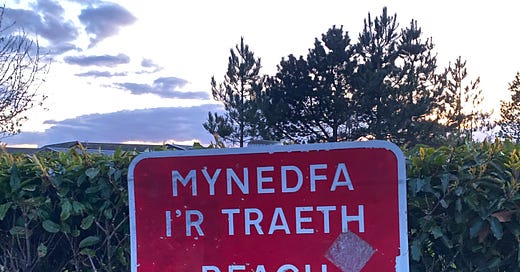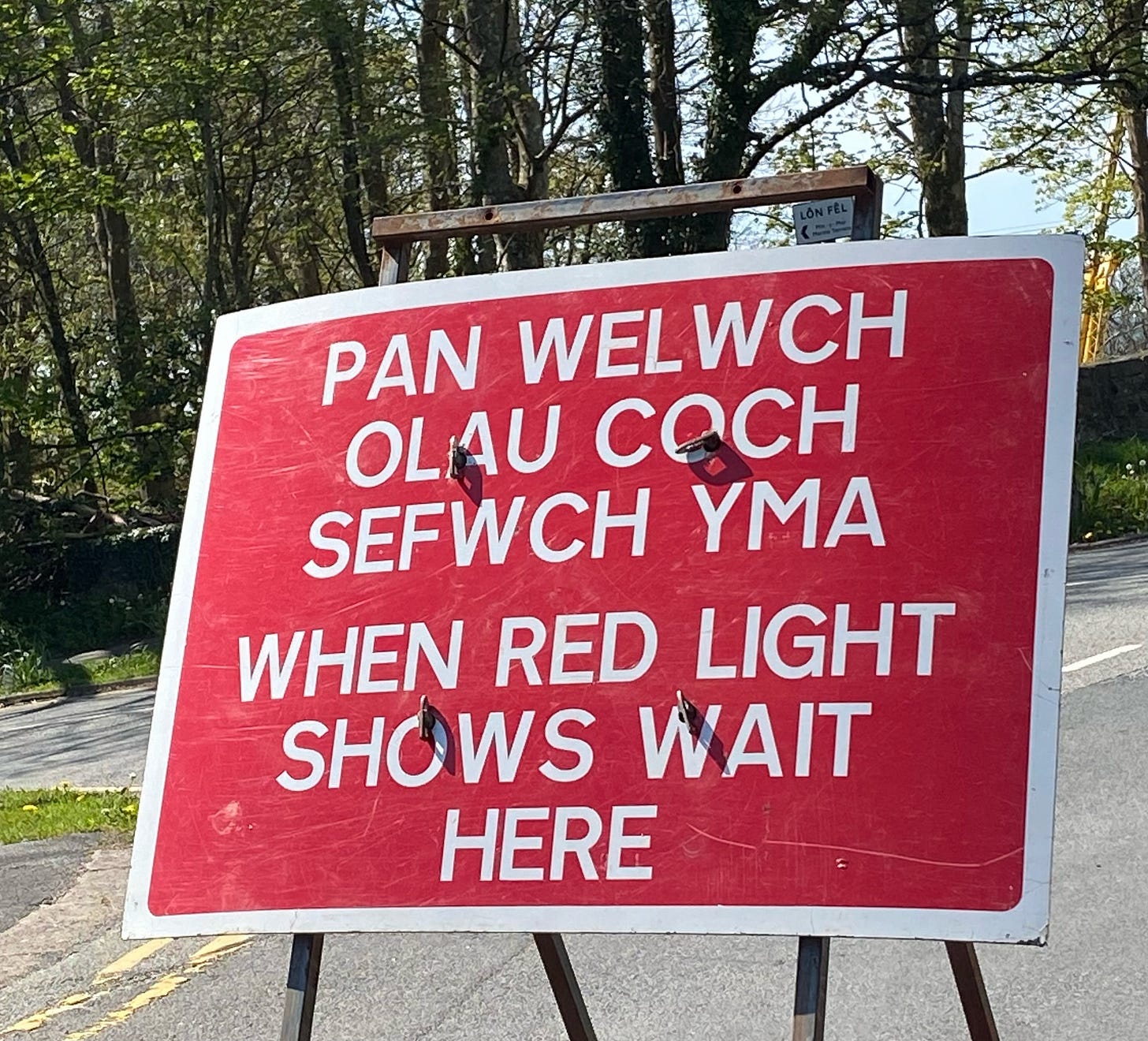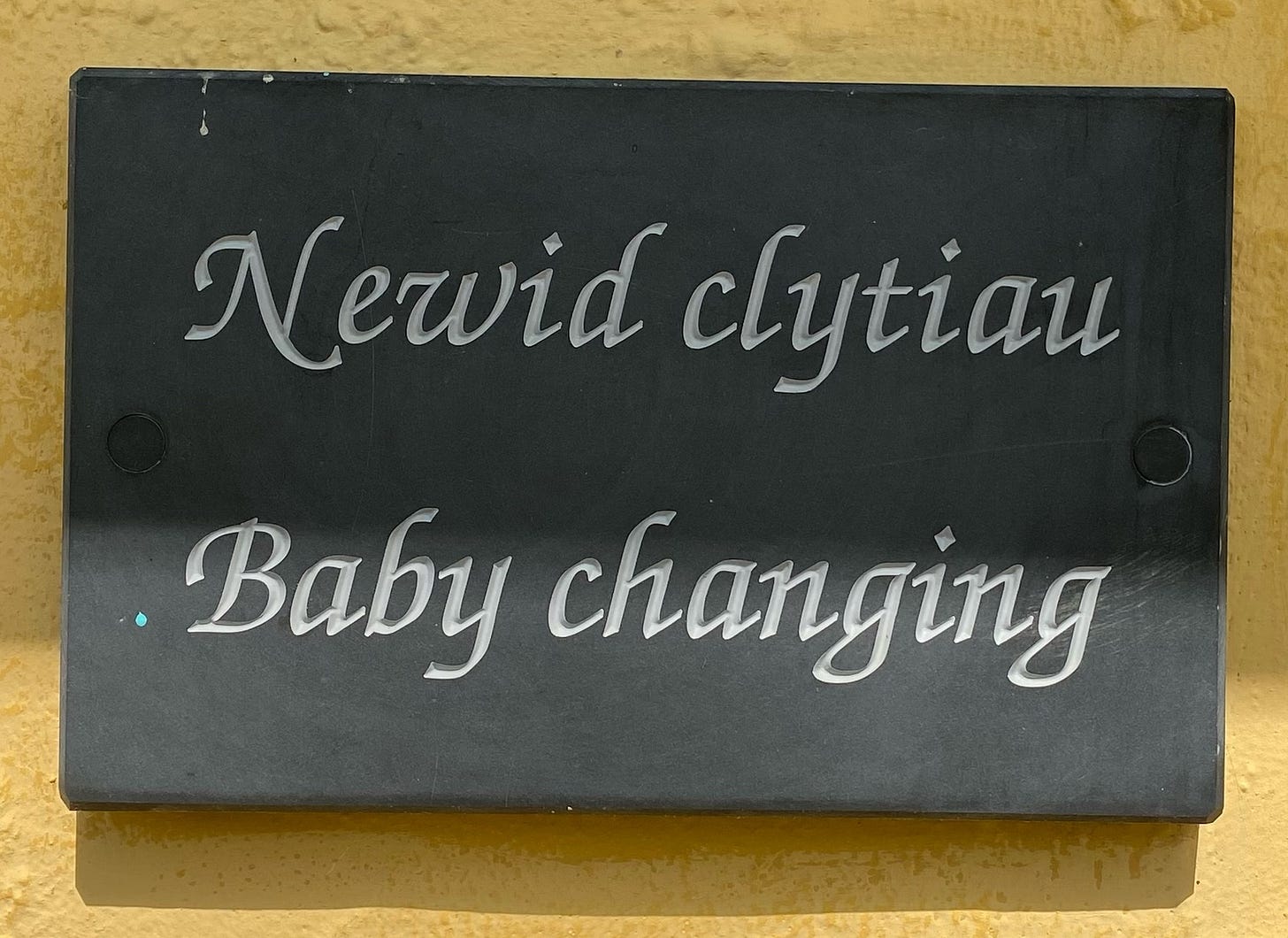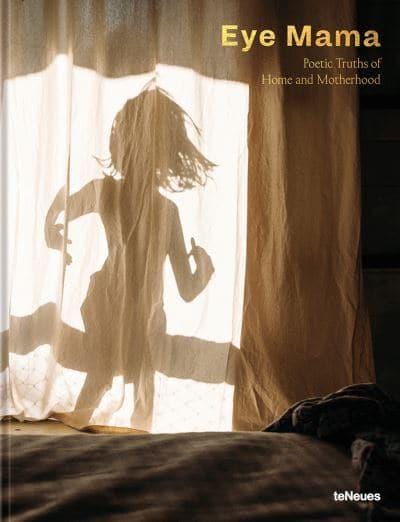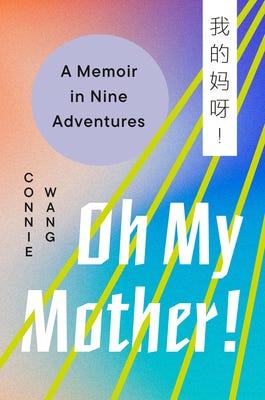I am in North Wales with my family and no wi-fi. (I am sending this from a nearby café as my phone reception is not even strong enough to connect to my computer.) Like the last and only other time I’ve been to Wales, I was immediately in awe of the Welsh road signs as soon as we crossed the border. After the 2011 Welsh Language Measure was passed, an act to ensure Welsh has equal status with English, all signs and information must now be shown in both English and Welsh.
Also known as Cymraeg, Welsh is often held up as a model of successful language revitalization. After the suppression of Welsh in the 19th century, when children were punished at school for speaking Welsh, often the only language they knew, the language began declining rapidly. It wasn’t until 2001 that the number of Welsh speakers in Wales increased for the first time in a century. Schools have played a huge part in the revitalization movement as children now have to learn the language up to the age of 16 at school. In some families, parents are learning alongside the children as theirs was the generation where Welsh was not mandatory in schools, and no one was able to teach them.
Languages never die alone, without a multitude of forces driving the loss, and the same is true for language revitalization. I think about this often when I consider mothers who struggle to pass on or maintain a heritage language with their children. If they do not have proper support systems in place like support from school, resources in the heritage language, community involvement, peer, and family support, it is a constant uphill battle. One person, often a mother, cannot be solely responsible for keeping a heritage language alive.
Language shift and loss is complex and language revitalization is never only about the language, but also about attitudes, behaviours, values and of course, politics. Language change is not linear and almost always emotional for those involved and often, generations to come. There is still a lot of prejudice and discrimination around the use of Welsh because of classism.
Before I head off to do more kid-friendly activities (there are soooo many kid-friendly activities where we are staying because it’s one of those kid-friendly places) I will leave you with some more Welsh and below, book recommendations!
A language lesson would not be a language lesson without some vocabulary. While reading about language loss and shift in Wales, I came across an “untranslatable” Welsh word (as I’ve written before, I don’t believe in untranslatable words as translation does not have to be one-for-one). But I will make an exception as it is beautiful and a fitting concept for this newsletter:
Hiraeth (Cymraeg/Welsh): a wistful but unrealisable longing for something, especially home.
And now, book recommendations:
On the Tip of My Tongue (should this be the new title of a recommendation/link section?)
Eye Mama: Poetic Truths of Home and Motherhood by Karni Arieli
I had the best conversation with Karni Arieli, BAFTA-nominated filmmaker, photographer, creator of Eye Mama Project on Instagram and soon-to-be book author (!) last week (more to come on that talk soon). I first discovered Arieli’s account in April 2021 and have been so moved by so many of the images she curates for her platform, and now, the book. I got a glimpse of the final collection, out May 8th in the UK, while sitting at my local coffee shop and of course I started to cry. The book is photographic portfolio all about the mama gaze, images created by female and non-binary photographers about home and caregiving. It is beautiful, moving and so necessary.
Oh My Mother! A Memoir in Nine Adventures by Connie Wang
I was lucky to read this book a few months ago ahead of its release May 9th. In Chinese, the closest meaning to oh my god is wo de ma ya. Translated literally, it means oh my mother and what you’d say when there are no other words, like a “polite expletive”. It’s a brilliant collection of essays about mothers, daughters, travel, the American Dream, immigration, notions of home, and Wang’s many oh my god moments with her captivating mom, Qing Li. There is a mother-daughter Magic Mike show in Las Vegas, multiple trips, or homecomings, to China and experimenting with edibles in Amsterdam. I still think about one part of the book often, when Li tells Wang she doesn’t want to be anyone but herself. It was a poignant moment showing how daughters see mothers, how mothers see themselves and how blurred those lines become post motherhood but also, in daughterhood.
Sugar and Slate by Charlotte Williams
I am reading a lot of older memoirs on language and multilingualism lately for a personal project and I just ordered this 2002 book about the daughter of a white Welsh-speaking mother and a black Guyanese father and what it means to belong, one of my favourite topics, obviously.
On the topic of multilingual memoirs, I also just finished the 1997 book, Polite Lies by Kyoko Mori and posted this heart-tugging quote on Instagram.
Momfluenced: Inside the Maddening, Picture-Perfect World of Mommy Influencer Culture by Sara Petersen
And finally, a huge congratulations to Sara Petersen on the publication of her book Momfluenced this week. Petersen, who is also behind
As always, thank you, or diolch (Welsh), for reading.
* I have been talking with friends recently about the act (definitions) of mothering/parenting versus motherhood and how the two differ. Perhaps something to discuss in a future thread . For example, loving motherhood and having children but finding the act of parenting, especially in tough emotional situations, really hard.


